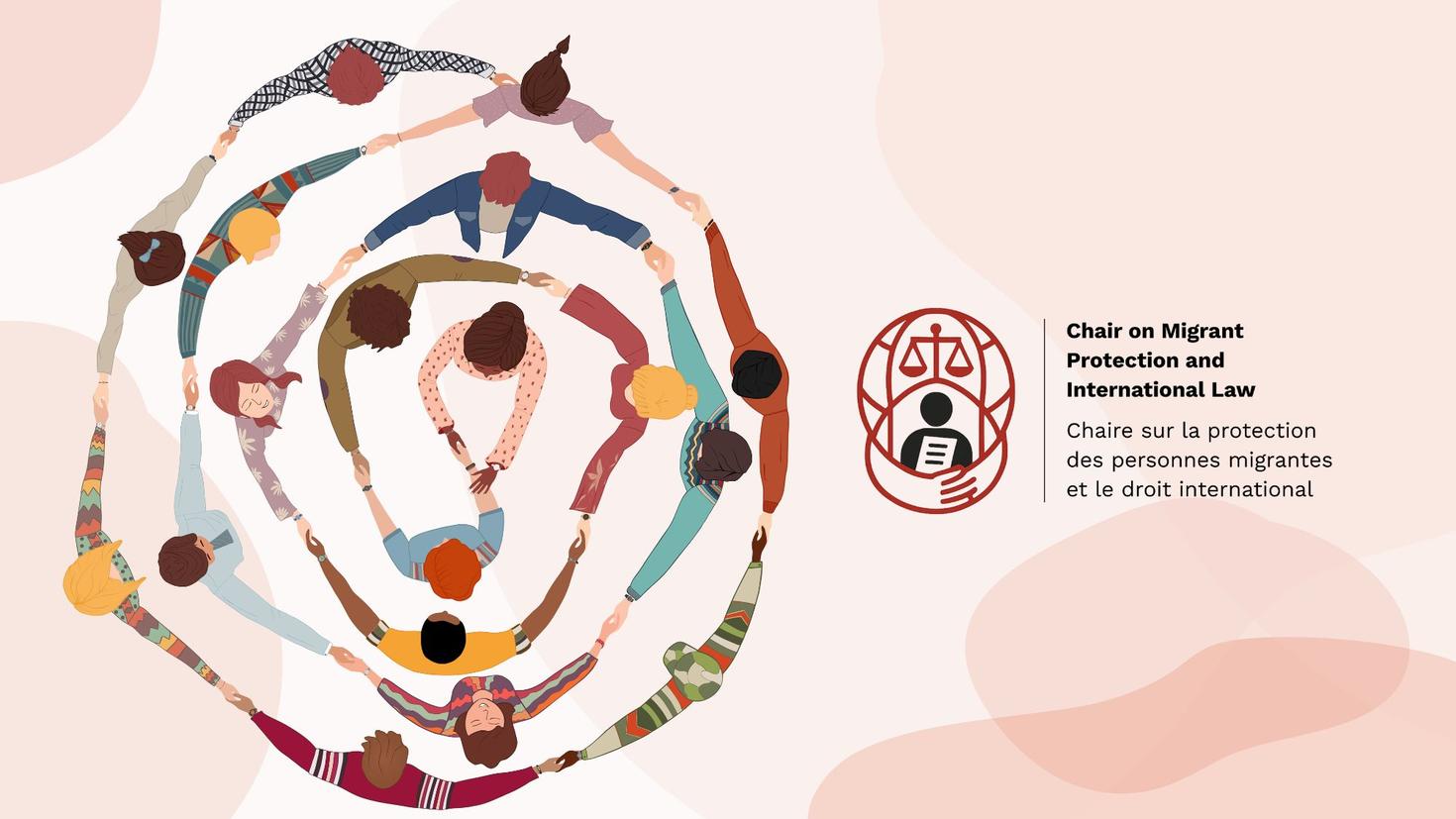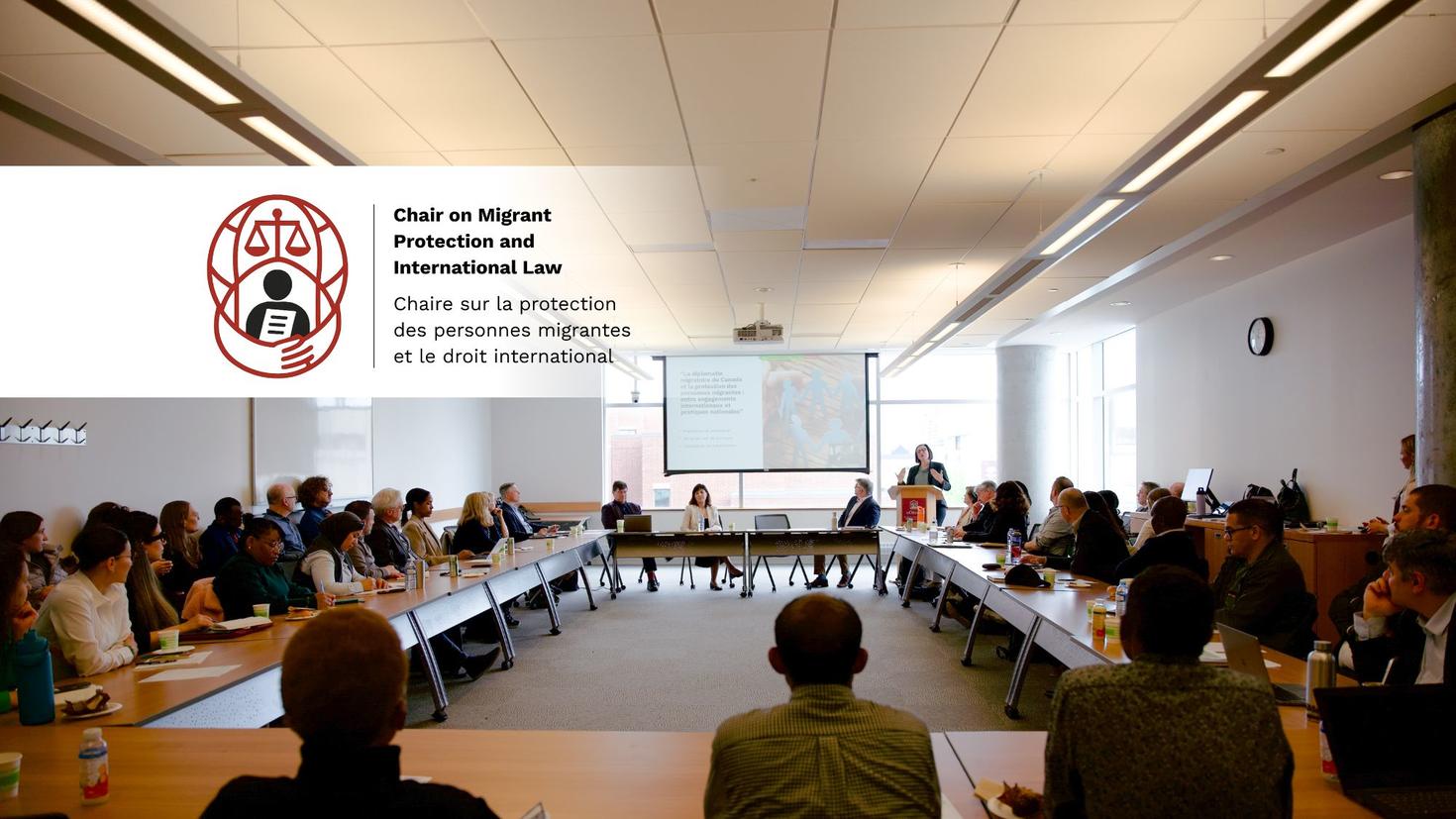Over the next five years (2025-2030), the Chair will focus on three core streams.

University Research Chair on Migrant Protection and International Law
Overview

Canada is frequently portrayed as having one of the world's best immigration and refugee systems and as a model for other countries. However, this conventional narrative obscures substantial contradictions, weaknesses, policy tensions, and dilemmas that migrants and stakeholders navigate daily. The last two decades have seen major changes to Canada's immigration and refugee policies, including more restrictive measures that affect unauthorized arrivals, modified processes for asylum seekers, expanded temporary migration programs with limited protections, increased complexity in pathways to permanent residency, and enhanced removal mechanisms.
Despite these important changes in Canada’s domestic policy, Canada's humanitarian brand remains strong internationally. This disconnect exists partly because: 1) there is limited research critically examining Canada's role in global displacement responses, and 2) the interplay between Canada's international engagement and domestic migration policies remains understudied. This research gap means Canadian practices can be exported without sufficient scrutiny, and domestic policies do not benefit from analysis of how Canada's international commitments translate into national actions.
The Chair on Migrant Protection and International Law aims to bridge these research silos by examining the relationship between Canada's domestic and international actions regarding diverse migrant populations - including temporary workers, international students, non-status migrants, asylum seekers, and refugees. The Chair will develop law and policy frameworks aimed at enhancing migrants’ rights and protections through a multidisciplinary and cross-jurisdictional comparative approach, with significant involvement of francophone researchers and bilingual knowledge dissemination.
Research Streams and Projects
Stream 1: Documenting Policy Evolution and Impact
Analyze changes to Canada's asylum and temporary migration policies over the past two decades and assess their impacts on migrants' trajectories, rights, and protections.
Stream 2: Analyzing International Commitments vs. Domestic Implementation
Examine gaps between Canada's international commitments and domestic practices and develop recommendations to align national policies with international human rights principles.
Stream 3: Conducting Comparative International Analysis
Conduct comparative analysis of temporary migrants' and asylum seekers' legal situations in Canada and similar countries and propose policy recommendations based on international best practices.
Cross-Stream Initiatives
Chairholder

Delphine Nakache
Delphine Nakache is a lawyer and Full Professor in the Common Law Section at the University of Ottawa’s Faculty of Law. As one of the world’s leading scholars on issues of refugee and migration policy and practice, Professor Nakache has dedicated her career to amplifying the voices of vulnerable populations caught in the large legal framework of statutes, regulations, policies and other legal instruments that crowd international migration systems. By bringing migrants’ life experiences – in their own words – to public policy and practice debates, her research has made a substantial impact on the protection of their fundamental rights. The vast and varied perspectives that make up her expansive research network are crucial to Professor Nakache’s goal of moving beyond traditional assumptions about Canada’s migration and refugee system.
Team Members

Mia Dubus
Chair Coordinator

Jane Chinyere Ezirigwe
Researcher

Christiana Sagay
Researcher

Brianna Brown
Research Assistant
News and Events

Two team members join Global Scholars Academy

Planning to apply for a postdoctoral fellowship?

URC on Migrant Protection and International Law: Inaugural Conference
Contact us
📧 Email: [email protected]
🤝 Interested in collaborating? Fill out this form
🔗 Follow us on LinkedIn: Chair on Migrant Protection and International Law